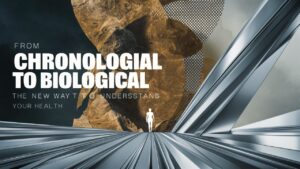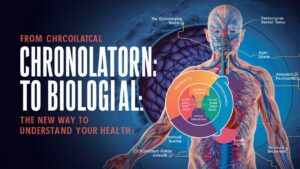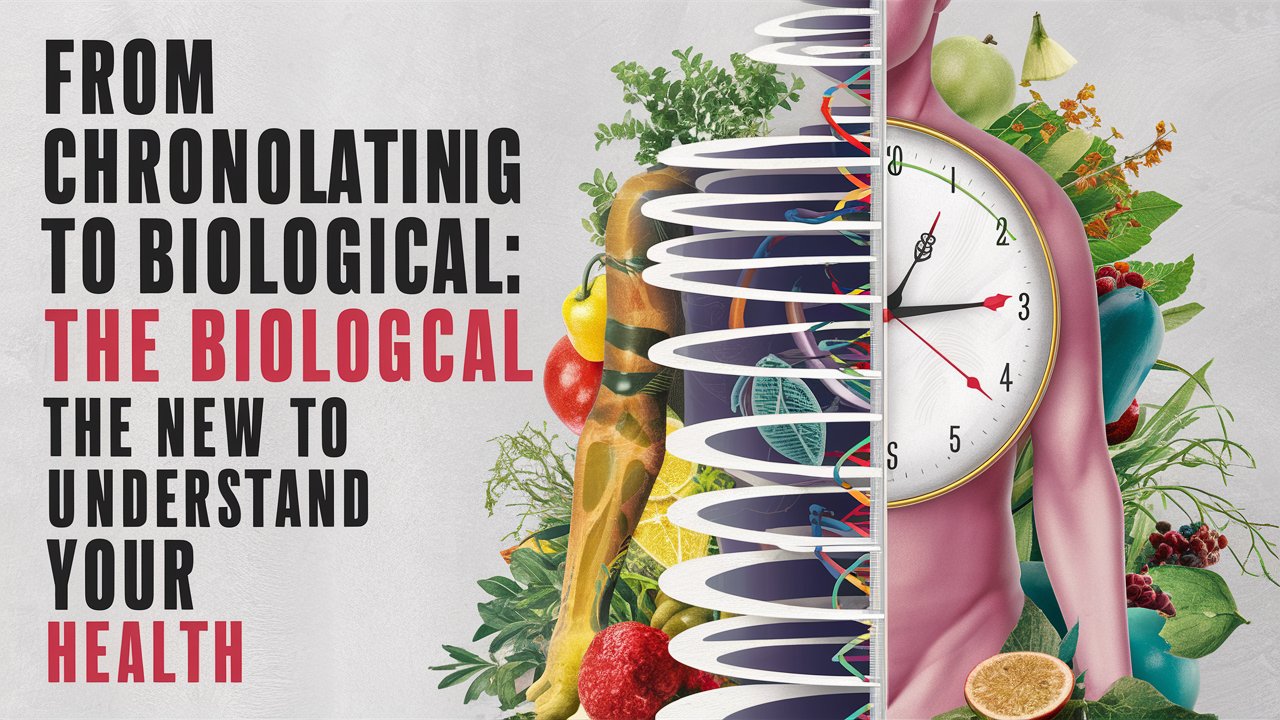Defining Biological Age
Biological age refers to the condition of our body systems rather than the number of years we have lived. Unlike chronological age, which is a simple count of years, biological age is a complex measure influenced by genetics, lifestyle, and environmental factors.
Relevance and Importance
Understanding biological age is crucial because it provides a more accurate picture of our overall health. While two individuals might be the same chronological age, their biological ages could be vastly different, indicating disparities in health status and disease risk.
Types and Categories
Cellular Age
Cellular age measures the condition of cells, taking into account factors like telomere length and the presence of senescent cells.
Tissue Age
This category examines the age of specific tissues, such as skin or muscle, based on their regenerative capabilities and signs of wear and tear.
Organ Age
Organ age focuses on the health and functionality of major organs like the heart, liver, and kidneys.
Systemic Age
Systemic age assesses the overall condition of bodily systems, such as the cardiovascular or immune system, providing a comprehensive view of aging.
Symptoms and Signs

Common Symptoms
- Decreased Energy Levels: Feeling more fatigued than usual.
- Memory Loss: Increased forgetfulness or difficulty concentrating.
- Reduced Physical Strength: Noticeable decline in muscle mass and strength.
- Slower Metabolism: Weight gain despite unchanged eating habits.
Uncommon Symptoms
- Early Onset of Chronic Diseases: Conditions like diabetes or hypertension appearing earlier than expected.
- Increased Susceptibility to Infections: More frequent colds or other infections.
Causes and Risk Factors
Biological Factors
- Genetics: Family history plays a significant role in determining biological age.
- Hormonal Changes: Fluctuations in hormones such as estrogen and testosterone.
Environmental Factors
- Pollution: Exposure to toxins can accelerate aging.
- Radiation: Both environmental and medical radiation impact cellular health.
Lifestyle Factors
- Diet: Poor nutrition can speed up aging processes.
- Exercise: Lack of physical activity contributes to the deterioration of bodily systems.
- Stress: Chronic stress negatively impacts overall health.
Diagnosis and Tests
Common Diagnostic Tools
- Blood Tests: To assess markers like glucose, cholesterol, and inflammatory markers.
- Imaging Tests: MRI or CT scans to examine the condition of internal organs.
- Genetic Testing: Identifies predispositions to certain aging-related conditions.
Advanced Diagnostic Tests
- Telomere Length Measurement: Evaluates cellular aging.
- Epigenetic Clocks: Uses DNA methylation patterns to estimate biological age.
Treatment Options
Medical Treatments
- Hormone Replacement Therapy: Helps balance hormonal levels.
- Antioxidant Supplements: Aids in reducing oxidative stress.
Therapies
- Physical Therapy: To maintain muscle strength and flexibility.
- Cognitive Therapy: Enhances mental sharpness and memory.
Lifestyle Adjustments
- Dietary Changes: Adopting a nutrient-rich diet.
- Regular Exercise: Incorporating both aerobic and resistance training.
Preventive Measures
Nutrition
- Balanced Diet: Emphasis on fruits, vegetables, lean proteins, and whole grains.
- Hydration: Ensuring adequate water intake.
Physical Activity
- Consistent Exercise Routine: A mix of cardio and strength training.
- Flexibility Exercises: Yoga or Pilates for maintaining flexibility.
Stress Management
- Mindfulness Practices: Meditation or deep-breathing exercises.
- Adequate Sleep: Ensuring sufficient and quality sleep.
Personal Stories or Case Studies

Real-Life Example 1
John, a 55-year-old marathon runner, has a biological age of 40 due to his healthy lifestyle and regular physical activity.
Real-Life Example 2
Mary, a 45-year-old smoker with a sedentary lifestyle, has a biological age of 60, highlighting the impact of lifestyle choices on biological age.
Expert Insights
Medical Professionals
Dr. Jane Smith, a gerontologist, states, “Biological age is a far better predictor of health outcomes than chronological age. By focusing on improving biological age, we can significantly enhance quality of life.”
Research Findings
A study published in the Journal of Aging Research found that individuals with a lower biological age had a 30% lower risk of chronic diseases compared to those with a higher biological age.
Understanding and monitoring biological age provides invaluable insights into our overall health and longevity. By adopting healthier lifestyle choices, we can improve our biological age and enhance our quality of life.
Call to Action
Consider getting a biological age assessment and take proactive steps to manage and improve your health today.
Holly Logan’s 90-Pound Weight Loss Story : From Stage to Strength
The Story of Obesity and Depression Together : Breaking the Cycle:

1 thought on “From Chronological to Biological Age : The New Way to Understand Your Health 2024”